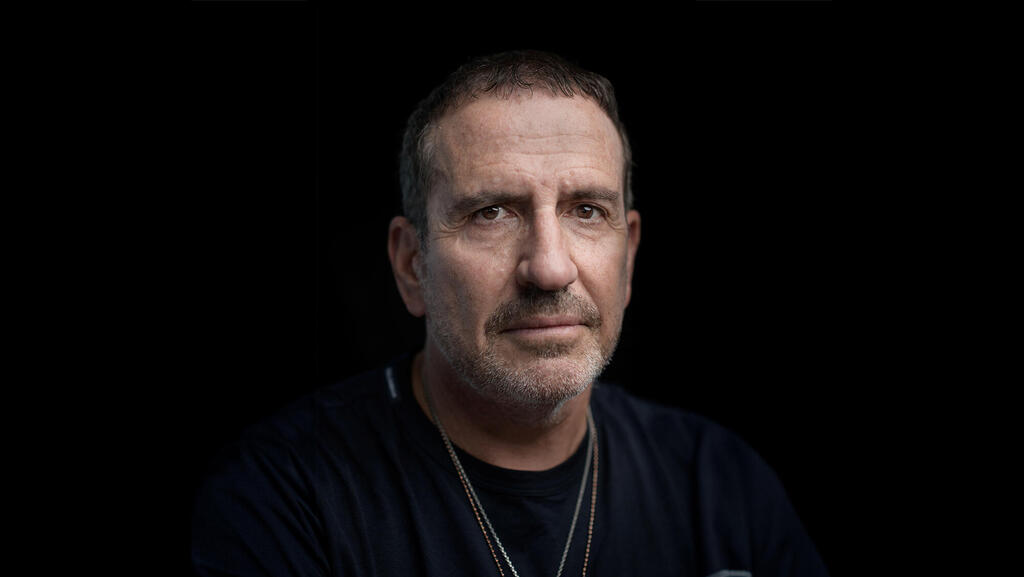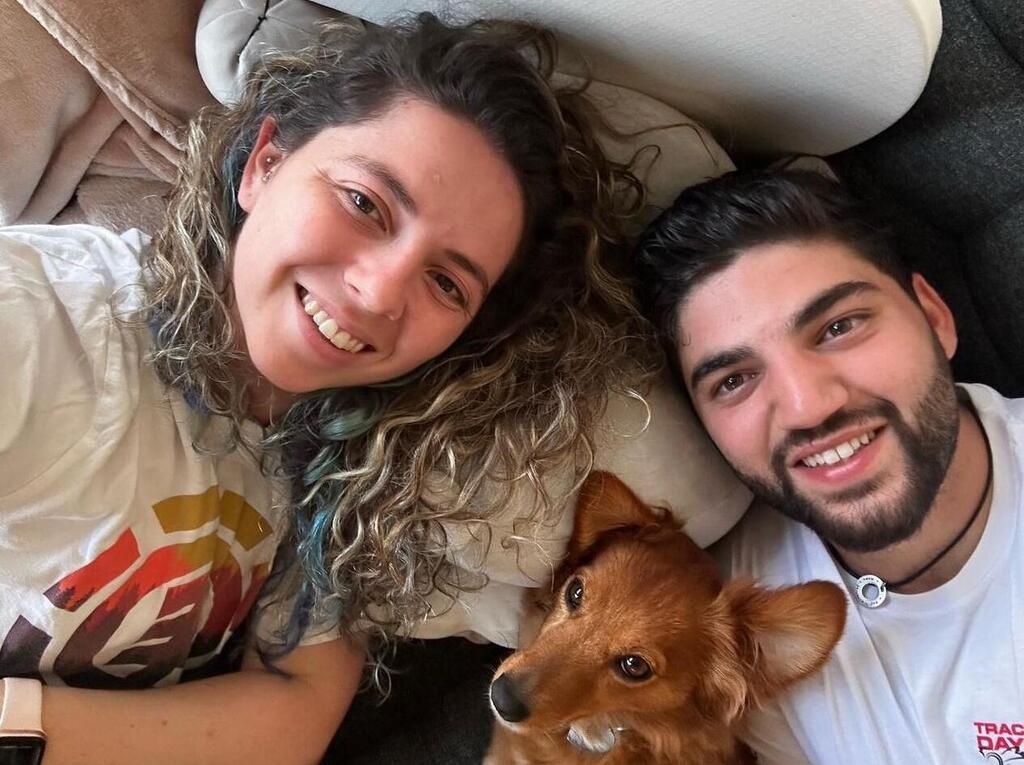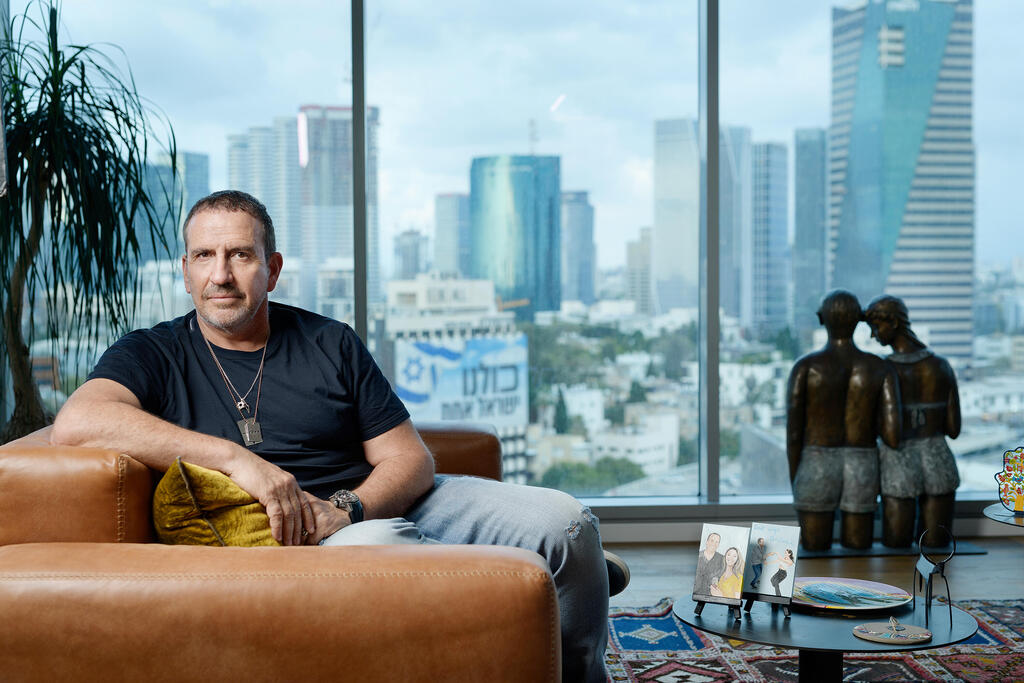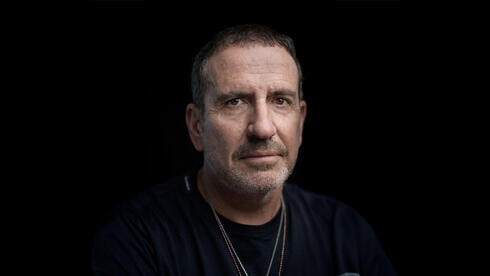
Eyes on the prize: Eyal Waldman zeroes in on what really matters
In an in-depth interview, Mellanox founder and Israel Prize laureate Eyal Waldman talks about life after the murder of his daughter on October 7, the Israel Prize controversy, and his mission in the efforts to replace Netanyahu
In about three and a half weeks, at the end of Independence Day, Eyal Waldman is supposed to step on what has been for decades the most respected stage, the one where the Israel Prize awards are handed out. He doesn't plan on missing it. He will go up, look directly at Prime Minister Binyamin Netanyahu, and shake his hand. "It won't be difficult for me to do it," he says. "I've done harder things."
On October 13, Waldman uploaded a photo of Netanyahu to Facebook with a bloodied handprint on his face, and asked everyone to share it. "Every additional day that this person sits in his chair, all parties will suffer," he wrote next to the photo. He did this about two days after he learned that his daughter Danielle and her partner Noam Shay were murdered in the massacre at the Nova party on October 7. The family members tried to locate Danielle and Noam for several nerve-wracking days, and when they were informed that they had been murdered, Waldman's pain was already mixed with anger at Netanyahu, as evidenced by that photo, which Waldman has published repeatedly since then.
The government did not like it. When one of the professional committees that select the winners chose to award the Israel Prize for Entrepreneurship & Technological Innovation to Waldman, one of the leading entrepreneurs in the country, the Minister of Education Yoav Kisch tried to cancel the presentation of the prizes in the various fields and give them out only in the heroism and mutual responsibility category. An uproar arose, a petition was filed at the Supreme Court, and the laureate himself also decided that he would not give up fighting for the right to be awarded the prize. He protested the matter in interviews with the media, and even came to the Knesset's science committee, for an emotional and painful discussion on the issue. A month later it became clear that the efforts were successful, Kisch folded, and Waldman began to get emotional about the ceremony.
"It would be an honor for me to be in this position and receive the award," he says in an interview with Calcalist. "And it is also significant for Danielle. She would be very proud," he adds, his voice breaking. "I am fighting for her."
Wasn't there a moment when you thought why do I need all this?
"At first I hesitated. But this is the most respected award in Israel, and I said to myself: I'm not giving up on this. And not for me, but because of what happened with the awards this year. It bothered me that even this thing is being politicized. If you're associated with Netanyahu, you'll receive an Israel Prize, And if you aren't - you won't. When I realized what happened there I had no doubt that we could win this fight. They made a huge mistake with the prize. They didn't understand who they were facing."
What did you understand?
"My assessment is that things happened involving Shlomi Fogel (a businessman close to Netanyahu) and Minister Kisch, and I think the Netanyahu family as well."
And a month later, the cancellation was canceled, and you were officially announced as the winner of the award. Apparently the matter is settled.
"But Kisch continued to lie. He was interviewed and insisted that the cancellation was the right decision, but then it came to the Supreme Court and the Attorney General made it clear to him that she would not be able to defend the decision, and he realized that it would be necessary to involve Fogel and Netanyahu in the matter, and that is what made him withdraw. That's the only reason. He can talk about the unity of the people, but that was not the motive, just the understanding that if he continues he will get everyone in trouble."
And there was no desire to give up, simply because who has the strength to fight for it now, and who is in the mood for prizes?
"The award is very significant to me, but what is more important is the proper administration. We fought for proper administration, not for the prize for Eyal Waldman, because politics does not belong in this field. There are professional committees, and they decide who wins the award."
And when Kiscsh finally called to tell you about the win, how was the conversation?
"According to the protocol. He must call, I said thank you."
This proper administration, a country that is run in an orderly manner - is this also what you are talking about when you say that you are fighting for Danielle?
"Yes", he says, wiping away tears that welled up in his eyes.
4 View gallery
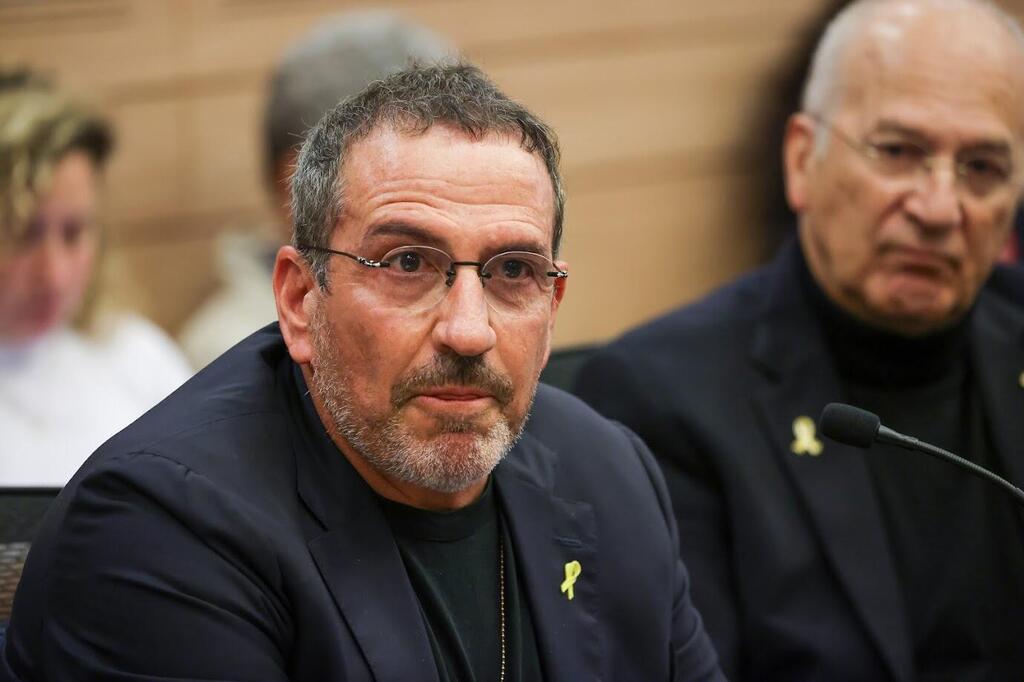

Waldman at the Knesset in March
(Photo: Noam Moskovitz, Knesset Spokesperson's office)
"Danielle would want us to fight for proper administration"
The fight for the future of the country, says Waldman, is one of his sources of strength in the last six months. And not only his, but also his ex-wife Ella and their older children Sharon (36) and Guy (32). "I told them that Danielle would have wanted us to continue living, and to live a good life," he explains. "Let us not be sad, and let us fight for proper administration. We need to do what she would want us to do."
Danielle (24), an interior design student, and Noam (24), a management student, were together for six years. "He was supposed to propose to her," says Waldman. "Instead of marrying them, we will bury them together," he told CNN shortly after the couple's murder became known.
When Danielle and Noam went to the Nova festival Waldman and his partner were on vacation in Bali, Indonesia. "I heard there were missiles, I wasn't stressed out, but then Guy and Sharon called to say that Danielle was at the Nova festival and she was missing. I returned to Israel as quickly as I could - I took a private plane to leave the island, then a flight to Cyprus and from there to Israel - and I went down south to look for Danielle. There were still encounters with terrorists around Sderot, there were bodies everywhere.
"Guy and Sharon located the location signals of her phone and smart watch, and General Israel Ziv searched for her at these points - at three of the five points there were encounters with terrorists. There was also an SOS message sent from her phone to the contacts she had set for emergency situations, and that's how I located her vehicle, which was full of shots fired from three directions. I kept hoping that she was injured somewhere or injured and abducted. Noam's phone had arrived in Gaza. We thought he was abducted. One of the young men who was with them in the car, Almog Sarusi, is still being held in Gaza. For five days we had no idea where they were. But on that Wednesday they announced that they had been identified."
On the memorial page for Danielle on Ynet honoring those murdered, among comments from those who knew Danielle and those who didn't, Waldman wrote: "There isn't a morning that I don't think / I love you. Daddy." He describes her as a young woman "smiling, happy, did no harm to anyone, everyone who met her fell in love with her". And she is with him all the time, not just in the morning. "In the morning when I wake up I see pictures of her, now I'm driving so I'm in her Jeep, I sometimes take care of her dog, Jessie, who her sister is raising now. Our relationship with Noam's family has strengthened. We meet. It's in everything. I've been surrounded by bereavement all my life, but this is of completely different magnitude."
His uncle, his mother's brother, Giora-Yoel Yishayansky was killed in a helicopter crash in Sinai in 1971, when Waldman was 11 years old. "My grandparents lost their son, my mother lost her brother. Her best friend named her son Yoel, after my uncle, and he was also killed in service. Both were killed at the age of 24. Danielle was also killed at the age of 24. They were all the same age, 17-18 years apart."
And there are also the friends. "I lost seven very close friends and more than ten other friends," says Waldman, and names them: "Eddie Lev in an attempt to eject from a Skyhawk. Gil Ivri in an F-16 in the Negev. Naftali Dodless in the reserves in Lebanon. Gooni Harnik in Beaufort. Erez Gerstein, Amir Mei-Tal also in Lebanon. And Yoel Dilian, in a car accident during the training of the paratroopers."
And with this long-standing pain, and the fresh pain for Danielle and Noam, we come to Memorial Day and Independence Day. Members of bereaved families have been asking for years to separate these two days, and this year the connection is especially difficult.
"The whole country is traumatized, and little by little it needs to be brought out of the trauma. But I would not change what the founding fathers established, it should be preserved. There is a lot of wisdom in the juxtaposition of the days - you go through mourning for people who gave their lives for Independence Day, because after all, we are a country. It's amazing and we paid a heavy price for it. The flag parade on the eve of independence Day is not easy, and everything will be difficult not only this year, but also in the coming years. There will be more waves, for example, when there is an investigation committee and they will analyze what happened on October 7, who is at fault.”
"This is not a matter of being ‘anti-Bibi’, it is for the benefit of the State of Israel"
After the investigative committee completes its work, says Waldman, "there will also be resignations." But he has been waiting for Netanyahu's resignation since the first week, as evidenced by that photo. "He is responsible and he has to go," he explains. "This is not a picture I created, I saw it and uploaded it. It is difficult, but it says: the prime minister is responsible and must draw conclusions. There was a colossal failure, and whoever is at the top of the pyramid must take responsibility for what is happening here in the country. After such a great disaster, you cannot remain in office. And not only the Prime Minister, the Minister of Defense, the Chief of Staff, the head of intelligence and the head of the Shin Bet have to draw conclusions."
During the war?
"The war is already over to a large extent, so we have to see how they start to fix things here."
What needs to be fixed?
"What I did with the Israel Prize is a good example, that not only those who are close to the government will receive the award. There is a professional committee and the decisions are made in a matter-of-fact and fair manner. It is important to make sure that there is no corruption. Proper administration should be the heart of the public sector as well as the business sector in the country. People like Shlomi Fogel will not be able to accept benefits only because they are close to Netanyahu.
"And everyone needs to bear the burden, not just certain sectors - both the security burden and the economic burden. Every citizen in the country has to serve national or military service, it should be equal. There is no reason for a difference of thousands of shekels between what a secular family receives, which also pays thousands of shekels to the state, to what an ultra-orthodox family gets. It's not reasonable. And regarding the budget - it is impossible that most of it serves certain sectors. It shouldn't be like this."
"The budget is an embarrassment," Waldman said at the Calcalist conference at the end of December, where he also referred to the "sectoral finance minister" and the entire "sectoral and messianic" government. We need a government with a different order of priorities that will act in the interest of all citizens. Even before October 7, he protested against the government's priorities and was one of the most prominent high-tech-related people in the protest against the judicial reform led by Netanyahu, but now his words are even more painful and angry, and the criticism is steeped in blood - not just his.
You talk about the war that is largely over, but the abductees are not home yet.
"We need to return them as soon as possible, it would be terrible if we celebrate the Passover seder without the abductees. And how terrible it is for the families, what a terrible pain it is not to know what their loved ones are going through. So we need to act both militarily and in negotiations, with intense pressure on both channels. This is not an easy task. I don't like to sit at a distance without knowing all the details, but the extremists are a considerable burden on how the negotiations are being carried out, and I think it would have been easier with a different coalition. I returned from Dubai recently and, there, too, they say that it is difficult to talk to the current government, and the President of the United States, Joe Biden, also says that."
What should be done to deal with the attitude towards us in the world?
"Replace the Prime Minister."
Even before October 7 you thought he needed to be replaced.
"It's not a matter of being anti-Bibi, it's in the interest of the State of Israel. Think about what Qatar or Biden had to deal with that would lead them to say that it is very difficult to work with the prime minister. And the statements that elections or resignations are moral encouragement to Hamas are irrelevant. We have to do what is right for our country, Hamas should not be in these considerations. If you include them in the set of considerations - you let them win."
"We need agreements with the Palestinians, or we will continue to kill each other"
Mellanox, the company you founded and led for 21 years, employed Palestinians for years.
"And in the West Bank it still employs them, but in the Gaza Strip it stopped on October 7."
How does the choice to hire them look from the distance of time? Do you feel betrayed?
"I don't think I would have done anything differently. I do feel betrayed by senior Palestinian officials with whom I worked closely and I think they supported Hamas, who gave Hamas shelter in several places, and in my opinion also financially."
On the other hand, he talks about extensive support from the American company Nvidia, which bought Mellanox about four years ago. "Avinatan Or, an employee of the company, was kidnapped with his partner, Noa Argamani. And there are 700 employees who served or are serving as reservists in the war. Nvidia supports and contributes as much as it can. CEO Jensen Huang has been a friend of mine for years, and our personal story was also difficult for him. He was always very supportive of Israel, even though he was criticized for it, he made significant contributions and tried to help as much as he could."
Waldman himself has also been involved in various aid initiatives in recent months. "Many sectors need to be taken care of, the abductees, the freed families, the survivors," he explains. Among other things, he is involved in the struggle for the return of the abducted, and has contributed a great deal to evacuees and various military units (mainly to Egoz and Golani, as a former Golani soldier himself. "Golanis are brothers, this is brotherhood, this is the truth").
Are you considering taking your public activity further?
"A lot of people want me to go into politics. I prefer not to, but under certain circumstances I might do it. In any case, I believe that new people will enter politics."
What are the specific circumstances under which this can happen?
"I'm not dealing with that right now."
You worked with Palestinians not only on the business level. You tried to promote a comprehensive peace initiative, to initiate a process.
"My plan was to establish normalization with Saudi Arabia and use it as a corridor for the Muslim countries of Indonesia, Malaysia, and Qatar. I think the Saudis should be our bridge to the Islamic countries. With their help, it is possible to stop even the hostility towards Iran, and in the end also solve the Palestinian problem."
Iran? After what Israel experienced this week? Isn't that a bit naive?
"I'm naive. What's better, that we keep killing each other?".
It is also difficult to think about solving the Palestinian problem after October 7.
"In 1973, our biggest enemy was Egypt, and within four years we started a peace process with them. And this peace is a success to this day. So I hope that this will happen with the Palestinians as well, after the change of leadership on both sides. But it is not something that should be talked about now. Now we need to release the hostages, destroy Hamas and the Islamic Jihad, take the IDF out of Gaza - and make sure that everyone who approaches the border is shot - and build a coalition of Arab and European countries and the UN that will take the mandate over Gaza, that will make sure that there is no shooting and start building the the Gaza Strip anew, for example with education like in the Emirates. Then I hope that in four years, after the change of leadership, we can reach agreements. The alternative is to keep killing each other."
"Mellanox is the plumbing of the AI revolution"
Waldman (63) is an electrical engineer by training. In 1993 he founded the chip company Galileo, issued it on the Nasdaq and left shortly before it was sold to the American company Marvel for about $2.7 billion. In 1999 he was one of the founders of Mellanox, which produced components for high-speed communication networks. Over the years he served as the CEO, the chairman and its president. In 2020, he led its sale to Nvidia for about $7 billion, and left shortly after the completion of the deal. Since then, he has been investing his money through a fund he founded, Waldo Holdings, and also travels the world and goes snow skiing and water skiing.
Before the acquisition of Mellanox, Nvidia was worth $93 billion. After an investment of 7 billion and four years, it is traded at a value of $2.3 trillion. And you missed out on all of that.
"And I'm very proud of that. And also that Mellanox sells for more than $13 billion a year. It's amazing."
What caused this?
"AI. I predicted it a long time ago, the fact that artificial intelligence and data will explode. Nvidia has been building the infrastructure of artificial intelligence and supercomputers for years, and we at Mellanox also realized from the beginning that data is the most important thing. And we provide the infrastructure for it to the biggest computers in the world, to the best clouds. From day one we aimed for this, and now we are the plumbing of the AI revolution."
And what about Nvidia?
"It produces the brain. They are on the processor, we are on the connectivity. We allow more data to flow to the brain, we have expanded the pipeline, so the brain can be smarter and faster."
All the talk about AI makes one wonder if the hype will not blow over.
"It's not hype at all. In the future, all of our lives will be linked to artificial intelligence, in health, in the economy, in transportation, in everything. It's very difficult to succeed in this field, but it has countless applications, and it excites my imagination."
The fresh example that Waldman chooses to bring connects the global technological revolution to his private pain and national trauma. "Yesterday I was at Ichilov Hospital" he says. "Someone donated to the hospital a brain research system named after Danielle and Noam. It is a system that can perhaps also treat post-trauma, manage to calm the brain, using special equipment that will reduce the pressure and training in augmented reality that will teach patients to deal with post-trauma."
Serial entrepreneurs often say that they always have to start something new. Not for the money, but because it's a matter of character. What about you?
"I founded two companies that sold for billions of dollars, and I know how hard it is to succeed, so now I focus on other things. I invest, I am the chairman of several companies, and I meet entrepreneurs. I am targeting the fields of health, agritech, foodtech, fintech, semiconductors, AI, cyber, even real estate. I will not invest in gambling or porn."
Don't you miss the thrill of starting something? Or management?
"No. I'm still recovering from being CEO. I'm constantly in pursuit of time, constantly running, traveling fast from point to point, I don't have a second to myself, from visiting air force squadrons to a meeting regarding the abductees. The number of things I am involved in is large. And that's what I want to do now - make a change. It is important that things here be better."
Two of his partners in these intentions of change are also newly bereaved fathers: minister Gadi Eisenkot, who he knows from his Golani days, and former minister Izhar Shay. "I understand what they are going through. There is a bonding of a very sad partnership of fate. It connects us without words. I am in contact with Izhar both personally and in matters of the state, and I exchange messages with Eisenkot as well."
And amidst all the pain, you returned to skiing.
"I went three times, including the site where I skied with Danielle. The first time there it hurt a lot, but the second time she seemed to release me, it hurt less. The third time I went to another site. You have to practice living and coming back to life. This is very important. I see families who find it very difficult to even leave the house. It was also difficult for me to leave the house, I had to force myself to do it after the shivah week, so I went abroad. The first trips were generally about the abductees, they were missions. Interviews for foreign channels were also a task for the state. But over time you realize that life goes on, and that's also what Danielle would have wanted."
Waldman also described the difficulty of continuing at the Calcalist conference in December: "You go around with the feeling that you're missing something all the time. People ask what's up with you, and you say it's fine because you don't want to cause people pain, but inside it's not so."
Do you still say everything is fine when nothing is fine?
"Yes. I understand that people do not know what you are going through and do not know what to do in front of you. Our experience is very difficult, and we are not the only ones, and we continue to live. Danielle’s mother, the brothers - they are strong, and it is still difficult for them. And so am I. But when they ask me 'How’s it going?', they will always hear me say 'I’m fine'.”









